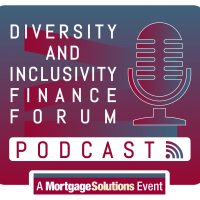
Speaking on the Diversity and Inclusivity Finance Forum (DIFF) podcast on the evolution of attitudes towards Irish people, Higginson said he had taken elocution lessons to slow down his accent.
Higginson said whenever he worked with people from other nationalities where there might be a language barrier, he became conscious of this because he remembered times when people would “take the proverbial” out of him.
Higginson said this happened particularly in Southern England, and it would “infuriate” him when people said they could not understand what he was saying.
“So much so, I went – actually I’ve never told anyone this before – for elocution lessons, believe it or not, to try to slow it down,” Higginson said.
Funnily enough, he added, the challenge was the same in both England and Ireland, as comments on his accent would be made in both countries of people saying they could not understand him or suggesting he was speaking in a posh accent.
Adrian Moloney, group intermediary director at OSB Group, said his Irish parents did not face similar challenges because the community they relocated to was diverse and had other Irish people living there. However, having to interact with people from new and different backgrounds meant “the language barrier was there for everyone, not just the Irish ones”.
For some of his other friends whose Irish parents came to the UK earlier, Moloney said they had difficulties getting a job because of the Troubles that were happening at the time and the prejudice Irish people faced in England.
Moloney said his friend’s dad “developed a… stronger English accent… and learned to speak in a broader English accent to get jobs in different places”.
From mistrust to love
Host Bharat Sagar asked when the English attitude towards Irish people started to change.
Higginson said it was once the “terrible events” stopped happening in Manchester, London, Birmingham and elsewhere.
“Once that started to ease, it made a big difference,” he added.
Higginson also mentioned the integration of younger people into English communities, saying as more people from Northern Ireland and Scotland went to universities and started “building those relationships… that really helped”.
Higginson said that, overall, it was a mix of “the youth coming through and deciding that they wouldn’t have the same prejudices as before” and “the stopping of the events”.
Moloney said that in UK schools, children were not taught about the history between Ireland and England.
He said that in Ireland, “if you study history, a vast majority of that history discussion is about the UK and Ireland and what happened there”.
As for the presence of Irish people in the UK, Moloney said in the 70s and 80s most came over to work and do different types of jobs. Entering the 90s, Irish people started to work in a broader set of sectors, while some married people from other nationalities, meaning they now had families and grandchildren who were born in the UK.
He said this changed the dynamic between people in the UK and Ireland, particularly those from the Republic of Ireland.
“Part of it was the peace process and part of it was a broadening of the next generation of Irish people to come over here and live and work in the UK – and have relationships with people from the UK,” Moloney said.
Sagar said the story of Irish people in the UK started as one of mistrust towards them, then moved into one about their popularity. He asked Higginson and Moloney what made Ireland and its people so popular.
Moloney said: “A lot of it is Irish people are very welcoming – not to say other nations aren’t. If you go to Ireland… as people, they want to know about you. They ask questions, they’re generally interested, and they generally go the extra mile.”
Higginson agreed and said Ireland had a history of being neutral, adding: “That neutrality is a big thing”.
“When you’re neutral, you’re not going to upset anybody, but as soon as you start having an opinion on things, that’s different,” he added.
Higginson said the global migration of Irish people also meant most people know someone who is Irish.
Watch the video podcast below [32:18] hosted by Bharat Sagar, ambassador at large at AE3 Media, with guests George Higginson, managing director of Northern Ireland and UK strategic partnerships at Bank of Ireland UK and Adrian Moloney, group intermediary director at OSB Group.















